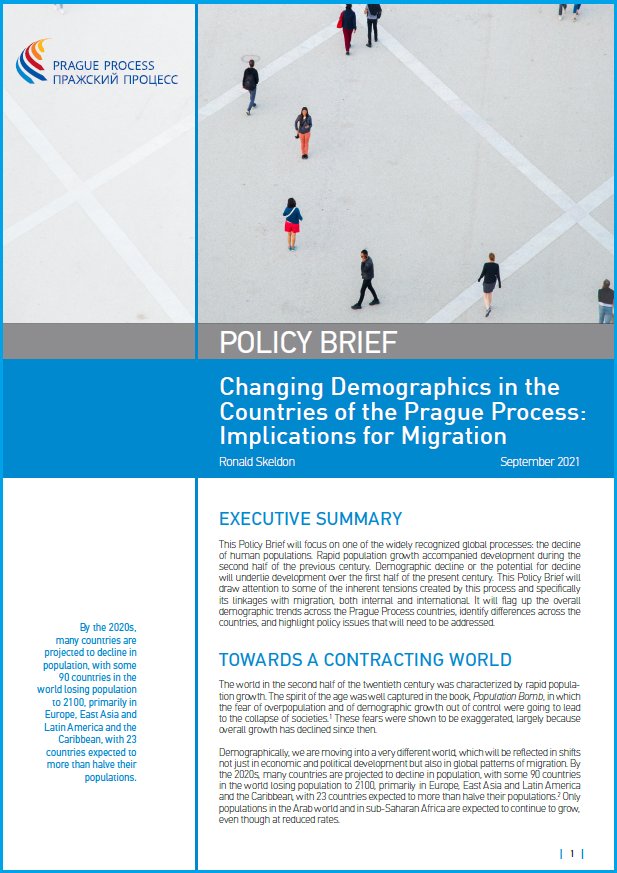The world in the second half of the twentieth century was characterized by rapid population growth. The spirit of the age was well captured in the book, Population Bomb, in which the fear of overpopulation and of demographic growth out of control were going to lead to the collapse of societies. These fears were shown to be exaggerated, largely because overall growth has declined since then.
The new Policy brief authored by Prof. Ronald Skeldon focuses on one of the widely recognized global processes: the decline of human populations. Rapid population growth accompanied development during the second half of the previous century. Demographic decline or the potential for decline will underlie development over the first half of the present century. This Policy Brief draws attention to some of the inherent tensions created by this process and specifically its linkages with migration, both internal and international. It flags up the overall demographic trends across the Prague Process countries, identifies differences across the countries, and highlights policy issues that will need to be addressed.
To preview and download the brief please use this link.
Our Repository
About the author
Ronald Skeldon is an Honorary Professor at Maastricht University and an Emeritus Professor at the University of Sussex. He was trained at the Universities of Glasgow, Scotland (BSc Hons) and Toronto, Canada (MA; PhD). He joined the University of Sussex in 2000 and was a core member of the Development Research Centre on Migration, Globalisation and Poverty and, from June 2009 to March 2011, was seconded to the Department for International Development (DFID) in London as a Senior Research Fellow.

